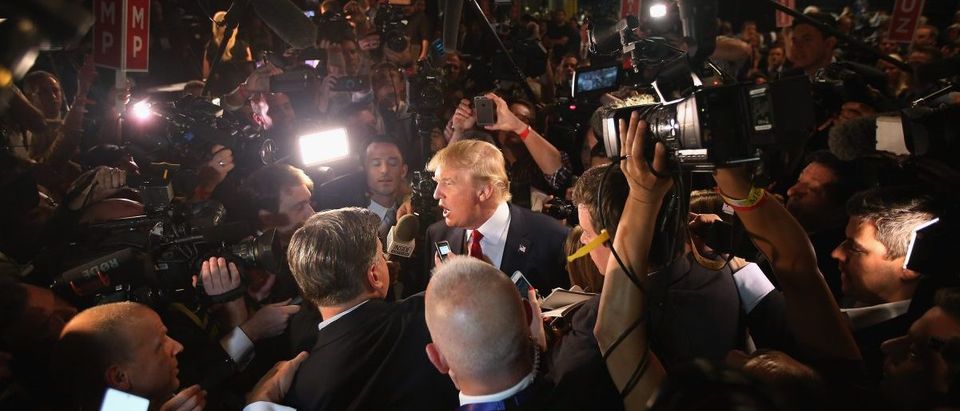Tucker Carlson’s recent interview with senior Newsweek writer Kurt Eichenwald is getting a lot of buzz on the internets. And rightly so. It’s compelling television.
It was also telling. As Tucker was trying in vain to get Eichenwald to substantiate his tweet alleging that Donald Trump had been institutionalized in 1990, Eichenwald said this: “I’m giving reporting process here — clearly I didn’t print it.”
To which Tucker, holding up a printed copy of the tweet, responded, “Well, you printed it right here.”
This exchange raises an interesting question: Should tweets from journalists be held to the same rigorous standards by which their news stories or even opinion columns are judged?
Clearly, Eichenwald believes the standard is different; otherwise, he wouldn’t have made the distinction.
This distinction does not exist in a vacuum. The other day, Julia Ioffe—more of a straight news reporter than an opinion journalist — was let go from Politico Magazine for writing, “Either Trump is fucking his daughter or he’s shirking nepotism laws.”
Putting aside the merits of whether Trump should have family members advising him (and running his businesses), I ask this simple question: Would she have written those words for a publication? I find it highly unlikely that she would have — even on a personal blog, let alone for a media outlet.
Should what is written on Twitter be held to a different standard? On one hand, there is a benefit to having a place where journalists can be less formal and sort of think out loud. On Sundays, a lot of writers tweet about blown football calls, but they would never presume to write a column about a random game. I don’t think that’s a problem. But what about unsubstantiated accusations made on Twitter by supposedly serious and respected journalists? Should those be tweeted in the first place?


